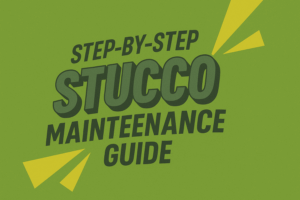What’s the Average Arizona Real Estate Commission Rate?
Editor’s note: On March 15, 2024, the National Association of Realtors (NAR) announced a landmark lawsuit settlement that will change the way real estate agent commissions are handled in the future. These changes will “decouple” seller and buyer agent compensation. Industry experts predict that this decoupling will likely lower agent fees and give buyers the ability to negotiate commission amounts directly. Learn more.
Most real estate agents in Arizona get paid through commissions. Commissions are typically calculated as a percentage of a property’s sale price, though some brokerages will charge a flat fee. The average agent commission rate nationwide is 5.8% of the home sale price, according to HomeLight’s real estate transaction data of thousands of home sales each year. But how does that compare to the average real estate commission rate in Arizona?
In this post, we’ll help you determine how much commission you might pay on your Arizona home sale, and what options are available to earn the highest proceeds possible.
What’s the average real estate commission in Arizona?
According to top-performing agent James Rusch-Michener, you can expect to pay between 5%–5.5% in agent commissions when selling a home in Arizona, with some variation based on location within the state. On a property worth the current statewide median home sale price of around $352,536, that amounts to $17,627–$19,389 in commission costs.
Michener, who works with over 67% more single-family homes than the average agent in his Prescott market, says the commission generally varies between the northern and southern parts of Arizona, with Black Canyon City — approximately 22 miles north of Phoenix — being the dividing point.
“From Black Canyon City south, is probably, like, five percent, and northern Arizona from Black Canyon City north, is about five and a half percent, is what I would say.”
He explains that, in general, in the northern area of Verde Valley and Flagstaff, the commissions are more established than in his area, where the commissions at times have been in the 4% range.
Using an overall statewide average of 5.25%, here’s a breakdown of how much you might pay in real estate commissions based on what a home sells for in six of the largest cities in Arizona:
Arizona city
Median home price
Typical commission at 5.25%
Phoenix
$515,000
$27,038
Tucson
$379,000
$19,898
Mesa
$491,800
$25,820
Chandler
$589,500
$30,949
Gilbert
$650,000
$34,125
Glendale
$460,000
$24,150
Median home prices are calculated from multiple public sales data sources.
HomeLight gathers agent commission data from cities throughout the U.S. To see if we have commission rates for your city, try our Agent Commissions Calculator. You might also be interested in our Net Proceeds Calculator and Home Value Estimator.
Still curious about commission rates in Arizona? Here are the answers to common questions about real estate agent commissions:
Who pays real estate commission fees?
The seller will pay the listing agent’s fee. As Michener explains, the commission can generally vary depending on what the listing agent has determined is appropriate with the seller’s approval. This will then be divided between the listing agent and their brokerage in a predefined split, usually 70/30, with the agent getting the lion’s share.
“They generally go into the listing knowing exactly what they’re going to get because it’s [listed] at the bottom of the property profile and shows them what they’re going to receive in terms of compensation,” says Michener.
Licensed real estate agents access these property profiles on the local multiple listing service (MLS), a database of homes for sale that is maintained by real estate professionals.
When is the commission paid?
The real estate commission will automatically be deducted from the sale proceeds at the time of closing. Until then, you typically won’t owe any money to the real estate agent.
Does the agent get to keep the full commission?
Although the seller pays the entire commission, the listing agent, who is representing the seller in a transaction, doesn’t keep it all. Part of their commission will go toward marketing your property with professional photography, open houses, offline marketing, and more.
Before the settlement terms of the NAR lawsuit were approved, the commission was typically split 50/50 with the buyer’s agent to compensate them for bringing a buyer to the sale and coordinating the buy side of the transaction. So, around 2.5% to 3% goes to the listing agent, and the other 2.5%–3% goes to the buyer’s agent.
Both the listing agent and the buyer’s agent will then share a percentage of their commission with their sponsoring broker.
These split rates can vary; however, it’s common for the listing agent to give their broker anywhere from 30%–50% of their commission, depending on the agent’s level of experience, their market size, and brokerage agreement.
How is the commission divided between agents?
The commission that’s paid by the seller will typically be split among each agent and the brokerages through which they hang their real estate license. Let’s say you sell your home for $420,000, and both the buyer agent and the listing agent get a 3% commission. The total commission would be $25,200, and each agent has an 80/20 split agreement with their brokerage. Here’s how that might look:
Listing agent: $10,080 (80% of their $12,600 commission share)
Listing broker: $2,520 (20% of their $12,600 commission share)
Buyer’s agent: $10,080 (80% of their $12,600 commission share)
Buyer’s broker: $2,520 (20% of their $12,600 commission share)
Michener says that in Arizona, brokers will generally receive between 5%–20% paid by each agent after the sale is completed.
Are Arizona commission rates negotiable?
You can negotiate real estate agent commission rates, but don’t be surprised if your agent holds firm on how much they charge. A Consumer Federation of America report found that only 27% of agents are willing to negotiate the commission.
One reason agents often don’t lower their rate is that it may reduce their ability to negotiate a higher sale price for the seller. An agent’s services often include photography and pricing analysis, so a lower commission could also translate into a smaller marketing budget for your property, an inaccurate list price, fewer home promotions, and a lower likelihood of selling.
Exceptions can occur if you’ve already found a buyer. Let’s say you’re selling your ranch home to a friend, or have decided to sell to a family member; in that case, the agent would likely be willing to play the role of transaction coordinator and independent go-between for a reduced commission rate.
“A lot of times, sellers know that they can negotiate commissions as well. I mean, it’s a pretty well-known fact that you can negotiate that with your listing agent. Some listing agents won’t negotiate it, [but] about 95 percent of them will negotiate that,” Michener explains.
Overall, commissions in Arizona are negotiable but do your research first. When asking an agent to lower their pay, you’re limiting the pool of agents willing to work with you. And the downsides to working with a low-commission agent can be steep. Without a top Arizona agent in your corner, you could dramatically undersell your home, have a rough selling experience, or fail to sell the home at all.
What is the lowest commission an Arizona Realtor® can take?
According to Michener, there are generally no minimum or maximum commissions that a real estate agent can charge as their commission.
For example, an agent may charge a flat fee of $1,000 or 7%, depending on the client’s affordability to list a property or one that is more complicated to sell.






